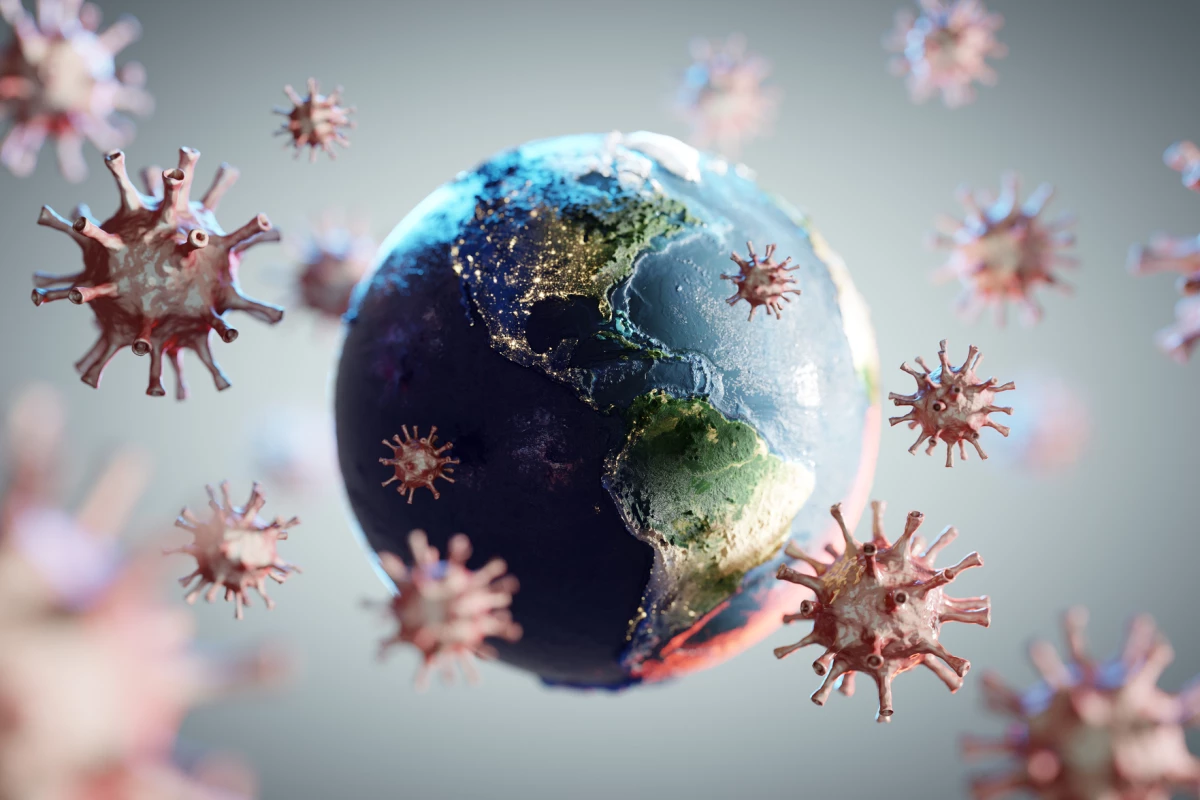A large new study, led by a team of geneticists from University College London and published in the peer-reviewed journal Nature Communications, has investigated over 10,000 mutations to the SARS-CoV-2 virus and concluded there currently does not appear to be any variant that is more infectious or transmissible.
Those closely following COVID-19 news cycles are probably familiar with the near-constant parade of headlines that have been published since the beginning of the year proclaiming the virus has mutated and we now have strains that are more infectious, or more deadly. However, as vaccine charity GAVI explains, viruses are mutating all the time, and the vast majority of mutations mean absolutely nothing in regards to how deadly or infectious a virus may be.
“A mutation is simply a change in the virus’ genome: the set of genetic instructions that contain all the information that the virus needs to function,” a statement from GAVI explains. “When the virus replicates, this set of instructions needs to be copied, but errors can creep in during this process. Depending on where in the genome mistakes occur, they can have a negative or positive impact on the virus’ ability to survive and replicate. Or, as is the case the majority of the time, they may have no impact at all.”
SARS-CoV-2 is arguably the most studied virus of all time. Ever since it appeared in late 2019 scientists have been tracking its evolution closely. Lucy van Dorp, from University College London’s Genetics Institute, has been following the virus’s genomic shifts since the beginning.
“The number of SARS-CoV-2 genomes being generated for scientific research is staggering,” says van Dorp. “We realized early on in the pandemic that we needed new approaches to analyze enormous amounts of data in close to real time to flag new mutations in the virus that could affect its transmission or symptom severity.”
In a new study the research team looked at a global dataset of virus genomes from more than 40,000 people spanning 99 countries. The study detected 12,706 unique genomic mutations and eventually homed in on 185 specific mutations that had arisen independently on at least three occasions. Recurrent independent mutations are important because if the same mutations arise frequently it would suggest they are the result of adaptive pressure.
Generating a model of the virus’s evolutionary tree, the researchers then investigated whether any of these specific recurrent mutations showed increasing levels of commonality compared to other closely related virus variants. The researchers could not detect any mutation that appeared to be more infectious or transmissible.
“To date, the fact that none of the 185 recurrent mutations in the SARS-CoV-2 population we identified as candidates for putative adaptation to its novel human host are statistically significantly associated with transmission suggests that the vast majority of mutations segregating at reasonable frequency are largely neutral in the context of transmission and viral fitness,” the researchers conclude in the newly published study.
There are three processes that can drive mutations in coronaviruses. Copying errors during viral replication can spontaneously arise, and if advantageous these mutations will rapidly spread. Another process is called recombination, when two similar virus variants co-infect the same host and interact during replication, resulting in a virus progeny with some genes from both parents. The final mutation process occurs when the natural immune process in a given host induces a minor change in the virus.
The new study suggests SARS-CoV-2 has only acquired a moderate genetic diversity since its genome has been tracked from the beginning of the year, leading the researchers to hypothesize the majority of recurrent mutations identified are induced by a host’s natural immunity. This means, although thousands of unique genomic mutations have been detected, these mutations are not the result of selective evolutionary pressure.
Instead, it seems the virus may have reached its optimal fitness by the time it began being closely tracked from January. Francois Balloux, lead author on the new study, says there most likely was a short period of optimization after the virus first jumped across to humans. That period may very have occurred in late 2019, before the virus really kicked off its international spread.
“We may well have missed this period of early adaptation of the virus in humans,” says Balloux. “We previously estimated SARS-CoV-2 jumped into humans in October or November 2019, but the first genomes we have date to the very end of December. By that time, viral mutations crucial for the transmissibility in humans may have emerged and become fixed, precluding us from studying them.”
The new study concludes by suggesting so far there is no sign SARS-CoV-2 has mutated into a variant with higher transmissibility. Of course that does not mean this won’t happen in the future, but it does indicate it probably hasn’t happened to date.
Balloux does note, however, the looming introduction of vaccines will certainly introduce new pressures on the virus to adapt. And these ongoing genomic studies will be vital in tracking the emergence of any new virus variants able to escape our vaccinated immune systems.
“The news on the vaccine front looks great,” adds Balloux. “The virus may well acquire vaccine-escape mutations in the future, but we’re confident we’ll be able to flag them up promptly, which would allow updating the vaccines in time if required.”
The new research was published in the journal Nature Communications.
Source: UCL




